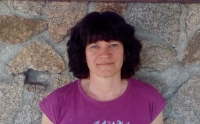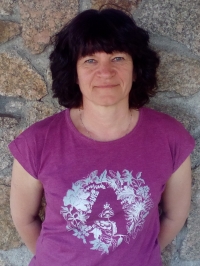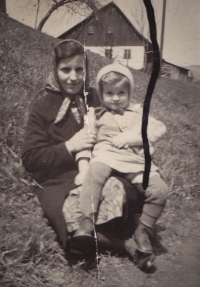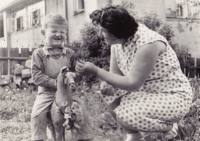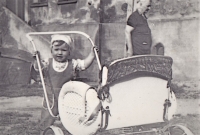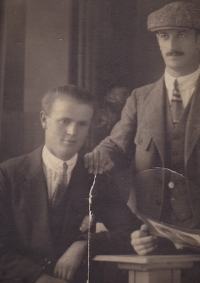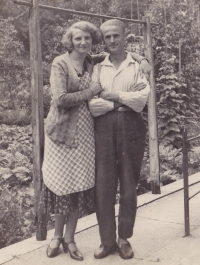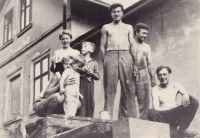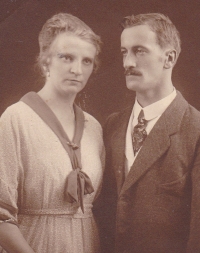Mgr. Hana Svobodová, roz. Lubasová
* 1965
-
"I remembered how good the relationships were, it was showed in one moment. That was when my dad stayed in the hospital when his leg was amputated. In Switzerland, of course, they knew what dad's health problems were. So they tried to help him in some way. Our healthcare system was at a much lower level than the Swiss one. In Switzerland, they had far better access to really good medicine than the doctors here. My aunt and uncle sent dad some high-quality, expensive Swiss medicine. I have a feeling that the senior doctor may have recommended it, that if our parents have the opportunity to get it, they should. The drugs were very expensive and helped dad. I know how thrifty my aunt was, for example flushing the toilet, so it was very nice of them not to feel sorry about the money, to provide it and to send my father the medicine.”
-
"I know my mother said that they brought us a lot of things from Switzerland. Not that there were any valuable things. But in Switzerland, they thought that here in socialist Czechoslovakia, most people are terribly poor and have nothing to wear and almost nothing to eat. So, before they flew to Czech, my aunt organized a collection among her friends and acquaintances. And they brought what they wanted to throw to the trash. My aunt packed up the whole suitcase and brought it to us as some amazing things. Mom said there were a few things to choose from, that a few things were really nice, but mostly there were torn nylons and pulled bras from my aunt's friends. When my aunt went to Switzerland, my mother threw them out and burned them. My aunt was a little surprised that it wasn't so bad here."
-
"Our grandmother didn't have money, and I think she was already so desperate at the time that she decided to act out of desperation to try to get my grandpa out of jail. That she would go to Liberec and ask the state prosecutor if he could let the grandfather go. It was such a desperate act. Her sister discouraged her, full of fear that the grandmother could remain in prison too, and she would then have to take care of her three children. But my grandmother succeeded, it was a real tour de force. She arrived in Liberec. My mother told me that my grandmother went into the office, getting through all the closed doors, even though the Germans were shouting at her: 'Halt! Halt! ‘And they didn't want to let her go. But as she was determined not to be discouraged, she really got to the state prosecutor's office. She knelt down in front of him and showed him her sick, ruined hands. Fortunately, he understood Czech. When she told him her story of why her grandfather was in prison, why he touted, the state prosecutor didn't let her get arrested or let her be kicked out of the office. He told her that he liked brave people and that she should go home and be calm. And in a week, my grandfather was at home. It was a nice example of how brave our grandmother was."
-
Full recordings
-
Tanvald, 29.03.2020
(audio)
duration: 01:21:53
Full recordings are available only for logged users.
Their uncle was dying in Switzerland. The regime forbade them to say goodbye
Hana Svobodová, née Lubasová, was born on May 31, 1965 in Jablonec nad Nisou. She lived in the village Plavy in the Jizera Mountains. Her father was a member of the Communist Party and her mother a non-party person. She grew up with her brother, who was four years older. In 1970, her father’s leg was amputated, which marked the fate of the whole family. Almost all care for children and the household was passed to the mother. In the early 1970s, the authorities prevented the family from visiting relatives in Switzerland. From 1979 to 1983, Hana Svobodová studied at the secondary grammar school in Tanvald, and from 1983 to 1987 at the pedagogical faculty in Ústí nad Labem. She later studied special pedagogy. She was teaching at a special school since the beginning of her career. She lives in Tanvald and has two adult children, a son and a daughter. She is not and has never been involved in any political party.
